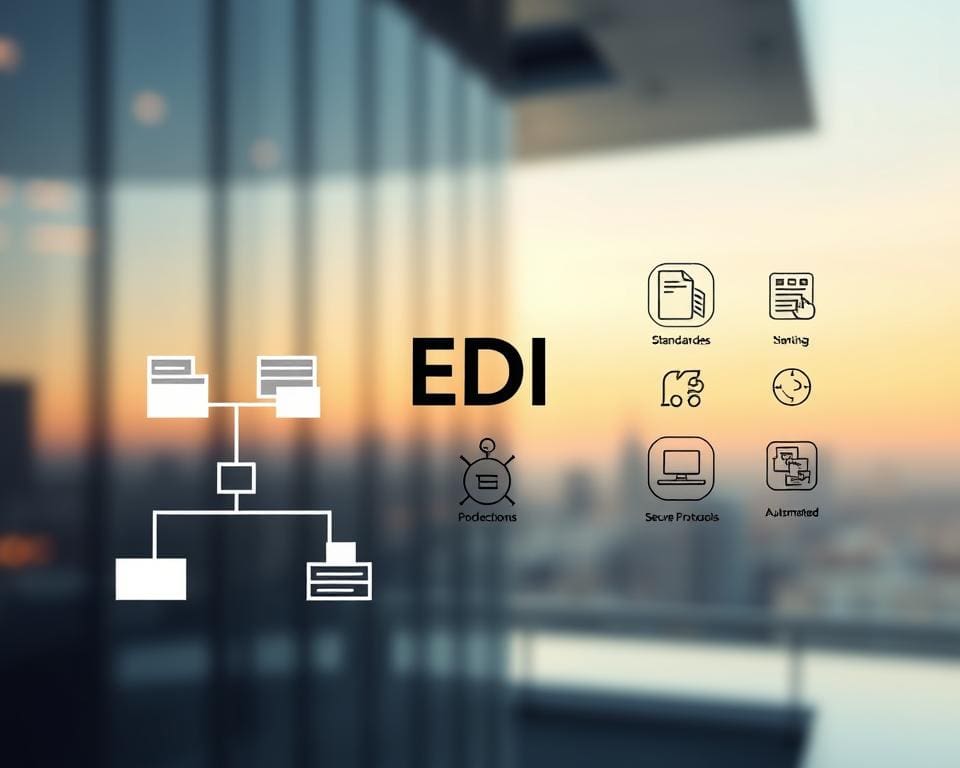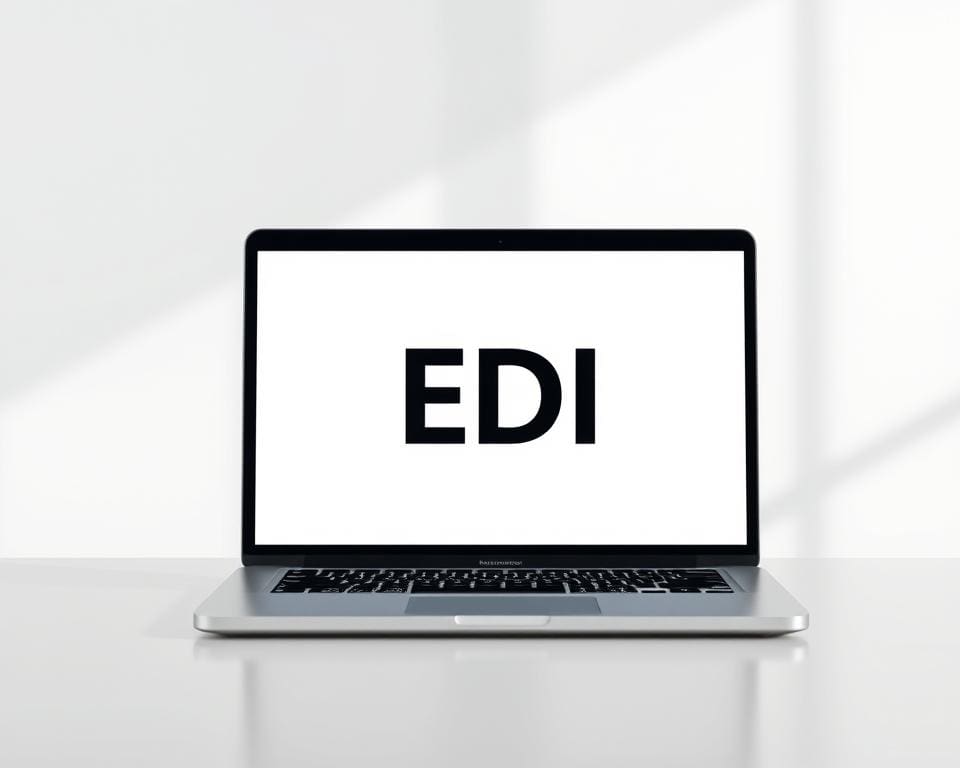In today’s fast-paced commercial landscape, understanding what EDI means in business is crucial for any organisation aiming to remain competitive. EDI, or Electronic Data Interchange, facilitates the efficient computer-to-computer exchange of standardised business documents between partners. This modern approach replaces the traditional reliance on paper-based methods, such as invoices and orders, leading to markedly faster processing times and improved accuracy.
By grasping the concept of EDI and its implications, stakeholders can enhance their understanding of business EDI interpretation. This invaluable tool paves the way for seamless communication and streamlined operations, ultimately fostering a more agile and responsive business environment.
Understanding EDI: Definition and Explanation
EDI, or Electronic Data Interchange, represents a transformative approach to exchanging business documents. Its fundamental purpose lies in allowing data to be transmitted in a structured format that computers can process without human oversight. This efficiency leads to faster transactions and reduced errors, making EDI a cornerstone of modern business communication.
What is EDI?
The EDI definition encompasses a wide range of formats and protocols, enabling organisations to share crucial information such as purchase orders, invoices, and shipping notices seamlessly. By adhering to standardised formats, companies ensure that their systems can interact smoothly, paving the way for enhanced collaboration and streamlined operations.
The Evolution of EDI in Business
Tracking the evolution of EDI in business reveals significant milestones shaped by technological advancements. Early systems relied on dial-up connections, often cumbersome and slow. The advent of the internet heralded a new era, allowing for cloud-based solutions that support real-time data exchange. Protocols like ANSI X12 and EDIFACT emerged, promoting interoperability among diverse EDI systems. This progressive evolution not only reflects the changing technological landscape but also signifies how EDI continues to redefine business transactions today.

What Does Edi Mean In Business
In the rapidly evolving landscape of modern business, understanding the importance of EDI becomes crucial. This technology facilitates seamless data exchange among organisations, making it an indispensable tool for maintaining competitiveness. By automating processes that were once time-consuming and prone to human error, EDI plays a pivotal role in shaping efficient business practices.
Importance of EDI for Modern Enterprises
The Edi Importance for contemporary businesses cannot be overstated. Integrating EDI streamlines operations, resulting in faster transaction processing and significantly reduced operational costs. Companies often find that they can redirect resources to more strategic initiatives when they eliminate the inefficiencies related to manual data entry. With increasing pressure to deliver quicker and more accurate service, businesses that leverage EDI remain ahead of the curve and meet customer expectations effectively.
How EDI Enhances Operational Efficiency
Implementing EDI enables organisations to enhance their operational efficiency considerably. Automation leads to quicker order fulfilment and more reliable supply chain management. Businesses can expect fewer errors in orders and invoices, allowing for smoother workflows. By embracing EDI, companies can maximise their productivity and achieve higher levels of customer satisfaction. The transformative impact of EDI extends far beyond simple data exchange; it fosters a culture of efficiency and accuracy within the organisation.
Edi Significance In Business
The significance of EDI in the contemporary business landscape cannot be overstated. These electronic data interchange systems play a vital role in refining supply chain management and enhancing partnership dynamics. Understanding how EDI facilitates information flow provides insights into its transformative potential.
The Role of EDI in Supply Chain Management
EDI serves as a backbone for supply chain optimisation. By enabling real-time visibility of inventory levels and order statuses, EDI empowers businesses to respond swiftly to fluctuations in demand. This immediate access to relevant data fosters better decision-making and aligns activities between suppliers and partners. In a world where efficiency is paramount, the adoption of EDI systems is increasingly becoming a standard practice.
Impact on Communication and Collaboration
The enhancement of communication through EDI is pivotal. Stakeholders gain improved transparency and trust as information sharing becomes seamless. This technology eradicates traditional barriers in communication, allowing teams to collaborate effortlessly. Successful EDI applications across various sectors demonstrate that businesses can achieve superior operational results and stronger relationships among collaborators, enhancing the overall Edi significance in business.
Edi Uses In Business
Electronic Data Interchange (EDI) has found extensive applications across various industries, transforming how businesses communicate and handle transactions. This technological advancement not only enhances efficiency but also reinforces the importance of real-time data sharing. Companies leveraging EDI can streamline their operations significantly, leading to remarkable Edi benefits in business.
Common Applications of EDI Across Industries
The versatility of EDI applications is evident in several sectors. Common uses include:
- Retail: Sending automated purchase orders and receiving electronic invoices.
- Manufacturing: Facilitating just-in-time production through direct shipment notices and inventory management.
- Healthcare: Managing patient records and billing via secure electronic communications.
- Logistics: Improving tracking capabilities with shipping confirmations and delivery notifications.
Case Studies: Successful EDI Implementations
Illustrative examples of successful EDI implementations underline its invaluable role in business. Walmart employs EDI to optimise its supply chain, resulting in lower operational costs and enhanced productivity. Amazon, another pioneer, harnesses the power of EDI to manage vast inventories efficiently and foster seamless communication with suppliers. By analysing these case studies, other businesses can identify pathways to adopt EDI successfully and reap significant Edi benefits in business.
Edi Benefits In Business
The advantages of adopting Electronic Data Interchange (EDI) in business are multifaceted and profound. One of the foremost EDI benefits in business is the significant reduction in processing and administrative costs. Traditional manual processes often lead to errors and delays, but by automating data exchange, organisations can streamline their operations and reallocate resources more effectively. This not only translates to financial savings but also enhances overall productivity.
Another key benefit of EDI is the improvement in data accuracy and transaction speed. In a landscape where timely information is crucial, business EDI interpretation allows for instantaneous access to critical data, making it easier to respond swiftly to market demands and changes. This rapid dissemination of information fosters a culture of agility, enabling companies to stay ahead of the competition.
Furthermore, EDI contributes significantly to customer satisfaction. With quicker order processing and more precise information sharing, businesses can create a seamless experience for their customers. Beyond operational efficiency, the reduced reliance on paper documents aligns with environmental sustainability initiatives, showcasing an organisation’s commitment to social responsibility. By quantifying these EDI benefits in business, companies can clearly demonstrate the value of implementing such solutions, ultimately paving the way for a more competitive future in their industries.









